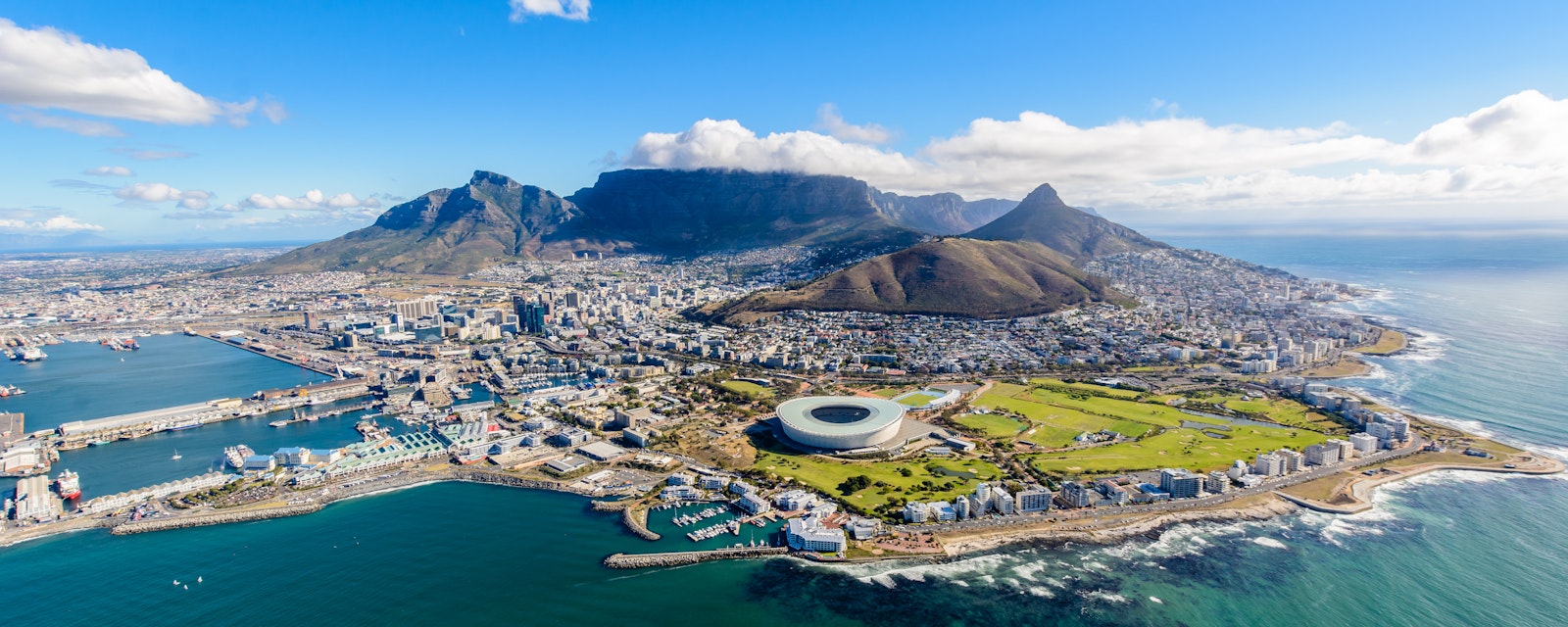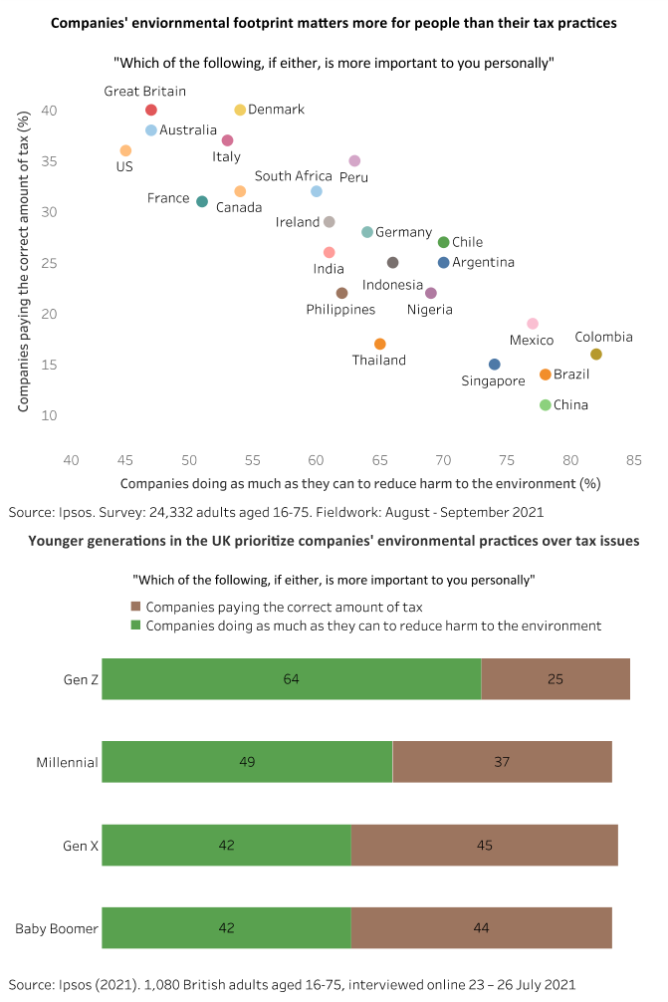Mid-term elections will be held in Argentina. The medium-term budget statement is due in South Africa.
Meanwhile, political noise will increase in the Philippines, Bulgaria is going to elections, “Super Tuesday” is looming in Brazil, and Ethiopia’s civil war is approaching a turning point.
Chart of the Week
The first week of the UN climate change conference in Glasgow has produced a range of initiatives and promises, including on the end of deforestation, the phasing-out of coal power, and a global partnership to cut emissions of the greenhouse gas methane by 2030. Relevant global players, however, have been notably absent from some of these agreements. The gradual emergence of a new consensus about climate policies is certainly on the way, but political constraints and diverging interests across and within countries continue to create uncertainty. At the same time, citizens are increasingly demanding when it comes to environmental protection. In fact, a recent survey reveals that citizens, and especially the young, tend to prioritize companies’ environmental practices over their tax practices. This is the case most clearly in emerging markets, while in advanced economies citizens tend to be more split between environmental and tax concerns. These trends should be read as a reminder of the multiple trade-offs that global businesses face in today's rapidly changing societies.
What to Watch
Argentina
Mid-term elections take place on 14 November. In the vote, half the lower house (127 seats out of 257) and one third of the Senate (24 seats out of 72) are in contention. In obligatory party primaries held in September, the governing Front for All (FdT) coalition finished nine points behind the Together for Change (JxC) opposition coalition. If this result is broadly replicated on Sunday, the FdT would fall behind JxC in the lower house and lose its Senate majority. A defeat along these lines would clearly complicate governability, but also risk another factional crisis within the FdT, while injecting negotiations with the International Monetary Fund (IMF) over Argentina’s USD 44bn debt with fresh uncertainty.
South Africa
While the ruling ANC faces tough coalition negotiations following the 1 November local elections, Finance Minister Enoch Godongwana has to present the Medium-Term Budget Policy Statement (MTBPS) on 11 November.Although the MTBPS was finalized before the polls, the ANC’s fall below 50% of the vote share will highlight longer-term spending pressures facing a party desperate to stem its decline. This year, Godongwana’s fiscal dilemmas will be eased by a commodities-led revenue overrun. However, the medium-term growth outlook is poor and Godongwana will have to talk up reforms, including South Africa’s USD 8.5bn COP26 energy transition deal from the US, EU and UK.
On the Horizon
ASIA PACIFIC
Japan
The Diet will convene on 10 November to confirm the result of last week’s Lower House election, with Prime Minister Fumio Kishida strengthened by the ruling LDP’s strong showing. Top of the administration’s agenda will be finalizing details for the new economic stimulus package, with tax incentives for firms who raise wages, a science and technology R&D support fund, and direct payments and travel subsidies for citizens all mooted.
Philippines
Political noise will increase this week ahead of the 15 November deadline for substitution of candidates for the 2022 national elections. The most-closely watched development will be whether the president’s daughter, Sara Duterte, who led surveys for the survey earlier this year, becomes a candidate for national office. If she chooses to run either for reelection as city mayor or as vice president, the early favorite for the presidency becomes Ferdinand Marcos, Jr., the son of the former autocrat.
EUROPE
Bulgaria
Regular presidential and snap parliamentary elections will be held on 14 November. Incumbent Rumen Radev (independent) is expected to win the presidential contest, possibly already in the first-round. The president’s post carries a rather symbolic value but takes on a key role in times of government change. In terms of the parliamentary vote – already the third this year – the center-right Citizens for European Development of Bulgaria (GERB) is set to win most mandates but will likely struggle to form a government. One party to watch is the pro-reform newcomer “We Continue the Change” (PP), which could come in second and play an important role in government formation.
Germany
Amid drastically increasing new infections – and low vaccination rates in European comparison – the future coalition partners are presenting new legislation. The reformed infection protection act is to replace the pandemic state of emergency when the latter runs out in late-November. The idea is to introduce a catalogue of potential measures to fight the pandemic but leave it to the 16 regional states to make their own choices. Especially the Liberals (FDP) are not only opposed to new lockdowns but also reject mandatory vaccinations and nationwide emergency rules.
UK/EU
Talks about the Northern Ireland protocol of the Brexit deal continue this week. However, continued risks around the protocol – and, indeed, the entire Brexit deal – are adding to an already uncertain economic outlook, reinforced by the Bank of England’s surprise decision last week to keep interest rates unchanged. It remains a real possibility that the UK decides to trigger Article 16 to put the protocol on hold; even if the EU does not to retaliate with pausing the entire Brexit deal, bilateral tensions with France remain elevated and could further complicate trade with the EU.
LATIN AMERICA
Brazil
A “Super Tuesday” on 9 November should seal the fate of a controversial constitutional amendment (PEC 23) that changes the spending cap and delays court-mandated payments of judicial debts. On the same day, the House of Representatives is scheduled to hold the second vote on the amendment while the Supreme Court (STF) starts the trial of an injunction granted by one of its judges to suspend the payment of several zero-accountability arrangements used to woo the support of parliamentarians. Opposition parties that voted in favor of PEC 23 are likely to change their vote, upsetting the 4-vote margin that permitted the approval in the first vote. PEC 23, as voted, goes way beyond the needs of a new cash transfer program, allegedly the main reason for the amendment, to cover increasing transfers of funds to politicians.
MIDDLE EAST AND AFRICA
Ethiopia
The year-old civil war is approaching a turning point. The Tigray Defense Forces (TDF) have pushed southwards in Amhara regional state. Fears are that the TDF, in alliance with the Oromo Liberation Army (OLA), could take the northern conflict into the capital. The TDF could also try to cut off landlocked Ethiopia’s vital Addis Ababa-Djibouti trade corridor, and thus fuel and food supply. Prime Minister Abiy Ahmed’s government has instated a nationwide emergency, calling on citizens to take up arms. Diplomatic efforts to pressure all sides into a ceasefire have gone into overdrive. The UN Security Council has called for a ceasefire and sanctions pressure, particularly from the US, is increasing dramatically.






